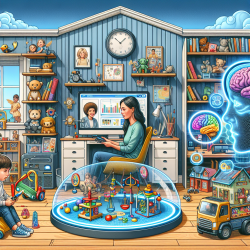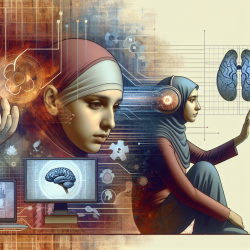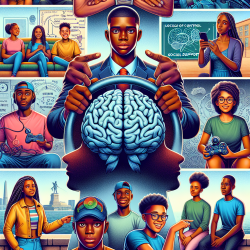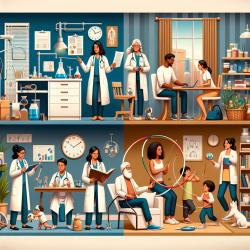As a practitioner committed to creating positive outcomes for children, you understand the importance of using evidence-based approaches. Recent advancements in the Child Attachment Interview (CAI) and the Child and Adolescent Reflective Functioning Scale (CRFS) within the PDM-2 framework provide compelling insights that can significantly enhance your practice. Here’s how you can leverage these findings to improve your therapeutic interventions.
Key Findings from the Research
The study titled "Advancement in the child attachment interview and the child and adolescent reflective functioning scale using a PDM-2 framework: case reports" explores how CAI and CRFS can be applied to better understand and treat developmental psychopathology. The research demonstrates the value of combining these tools with the Psychodynamic Diagnostic Manual (PDM-2) to create a nuanced, multi-dimensional assessment of a child's mental functioning and personality.
1. Comprehensive Assessment
By integrating CAI and CRFS with the PDM-2 framework, you can obtain a detailed understanding of a child's attachment representations and mentalization capacities. This holistic view allows for more accurate diagnostic formulations and tailored treatment plans.
2. Case Study Insights
The research presents two clinical cases—one involving a 10-year-old boy with Oppositional-Provocative Disorder and another involving a 15-year-old girl with Somatic Symptoms Disorder. Both cases illustrate how the combined use of CAI, CRFS, and PDM-2 can uncover intricate details about the child's emotional and cognitive functioning, providing invaluable information for intervention strategies.
3. Practical Applications
For instance, in the case of the 10-year-old boy, the integrated assessment revealed his capacity to form strong bonds but also highlighted his limited use of emotional language. This insight directs the focus of treatment towards enhancing emotional expression and affect regulation. Similarly, the 15-year-old girl's case underscored her rigid and idealistic self-representations, suggesting the need for supportive psychotherapy aimed at fostering a more authentic sense of self.
Why You Should Consider This Approach
- Enhanced Diagnostic Accuracy: The combined use of CAI, CRFS, and PDM-2 offers a multi-faceted view of a child's psychological profile, leading to more precise diagnoses.
- Tailored Interventions: Understanding the specific emotional and cognitive needs of each child allows for the development of customized treatment plans that are more likely to succeed.
- Improved Outcomes: Data-driven, individualized treatment plans are shown to be more effective in achieving positive therapeutic outcomes.
Next Steps for Practitioners
If you're looking to enhance your practice with these advanced tools, consider incorporating CAI and CRFS into your assessment protocols. Additionally, staying updated with the latest research and continuously refining your approach based on new findings can significantly improve your therapeutic effectiveness.
To read the original research paper, please follow this link: Advancement in the child attachment interview and the child and adolescent reflective functioning scale using a PDM-2 framework: case reports.










